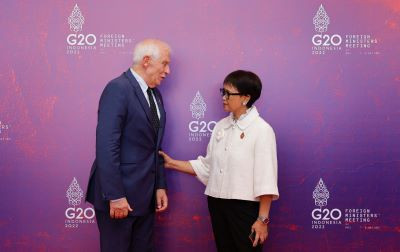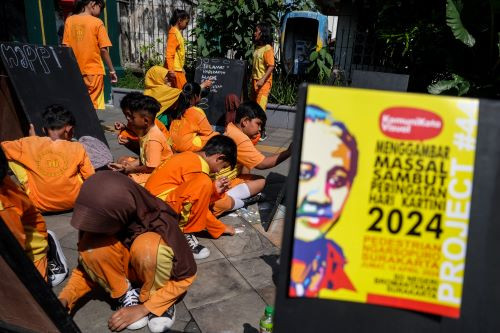Nationalism and the obligation to pay zakat
Some in-depth analyses have proven that zakat ideologically can be seen as a form of implementing the five principles of our national ideology – Pancasila.
Change Size
 Zakat is the pivotal approach in Islamic teachings to social problems such as poverty in society by sharing a percentage of wealth with relevant recipients as an obligation for those who can afford it. (Shutterstock/File)
Zakat is the pivotal approach in Islamic teachings to social problems such as poverty in society by sharing a percentage of wealth with relevant recipients as an obligation for those who can afford it. (Shutterstock/File)
T
hough there is no solid consensus, the word “nationalism” is usually attributed to Abbe Baurrel in the 15th century. In a narrow definition, nationalism can be defined as an ideology that drives people to believe their nation is superior to all others. This kind of understanding, in an extreme case, could be witnessed in the era of Adolf Hitler in Germany or Benito Mussolini in Italy. While in a wider perspective, nationalism can be pride in one’s nation-state and a willingness to defend it if necessary. In short, nationalism is an ideology arising from having the same national identity, which encourages citizens to take care of the nation and its people.
The latter understanding is in line and closely related to Islamic principles. Islam and nationalism cannot be separated. Many Muslim scholars in Indonesia, including Ridwan Lubis and Muhammad Hisyam in Ensiklopedi Tematis Dunia Islam, explain that Islam has a long history and played a significant role as a pioneer in nurturing nations. Even Madinah as a state is recognized as the first nation-state in the world, as mentioned by prominent historian Thomas Arnold. Nationalism is also relevant to Indonesia as the world’s most populous Muslim country, as Muslims were devoted to the cause of independence for Indonesia.
Nationalism, or in a more Islamic way hub al-wathan (love of the country and its people) is greatly felt by Muslims in Indonesia. This kind of love needs to be expressed in real actions.
In many ways, zakat, or alms, as the third pillar of faith in Islam should be taken into account for its root is the love of people near you, especially in your nation, who are in need. Moreover, some in-depth analyses have proven that zakat ideologically can be seen as a form of implementing the five principles of our national ideology – Pancasila, as it reflects the concept of tauhid (oneness of God), ukhuwah Islamiah (brotherhood), unity, equality and social justice.

















